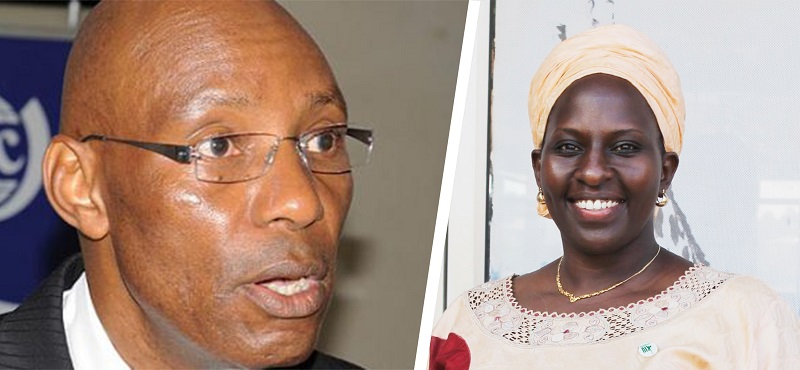The Pornography Control Committee (PCC) and the Uganda Communications Commission (UCC) are about to pen an agreement that will see internet service providers (ISPs) directed to block their customers from accessing websites with pornographic content.
The development was revealed Monday in a statement shared on the Facebook page of PCC, showing that they had just met UCC officials, including the Commission’s Executive Director, Eng. Godfrey Mutabazi, about the deal.
As a regulatory body of the communications sector, UCC has the authority to direct internet service providers to block any content that the Ugandan government supposes should not be consumed by her citizens.
And, according to Dr. Annette Kezaabu Kasimbazi, the head of the porn control committee, they want to sign a memorandum of understanding (MoU) with UCC so that they can work together to filter access to porn content and communication across all ISPs.
“We hope through UCC to require ISPs to put parental control Apps for subscribers and from this we shall have an official MoU signed between the two of us,” she was quoted in the statement.
Instituted in August of 2017 by Ethics minister Fr. Simon Lokodo, the nine-member pornography control team is charged with preventing use or spread of pornographic materials and information through apprehending and prosecuting perpetrators, collecting and destroying pornographic materials.
During their inauguration Lokodo said they would be provided with Shs2 billion every year to facilitate their activities to root out the vice that he said was “now eroding Uganda’s human resource” and in turn hindering “the achievement of our vision.”
Execution
Whereas UCC has control over ISPs, it does not have full control over what their customers are capable of doing with their gadgets.
Service providers might obey the request by UCC and block the pornographic content, but the internet provides a plethora of software tools that can be used to crash such walls and enable one to access the sites they want.
For instance, on February 18, 2016, the day of presidential elections, when government through ISPs blocked access to social media (Facebook and Twitter), majority of Ugandans, for the first time, discovered something that was life-changing, well, as far as internet battles go: VPN, or virtual private network.
With VPN, an individual is able to mask their location so the IP cannot track them; for instance, a person in Uganda could be shown to be India. (There are many other programs like this.)
Countries like China with all their advanced technology have failed to block people from accessing social media platforms like WhatsApp, which they blocked in order to promote local content.
On Tuesday morning when SautiTech contacted UCC for comment on whether they have come up with strategies to counter that, their spokesperson Pamela Ankunda said:
“Yes we have … yes, yes — it’s been thought through.”
She however, added that it’s still “premature” to go into the details, saying we wait until the MoU is signed.
Dr. Kezaabu did not respond to our multiple requests for comment.

